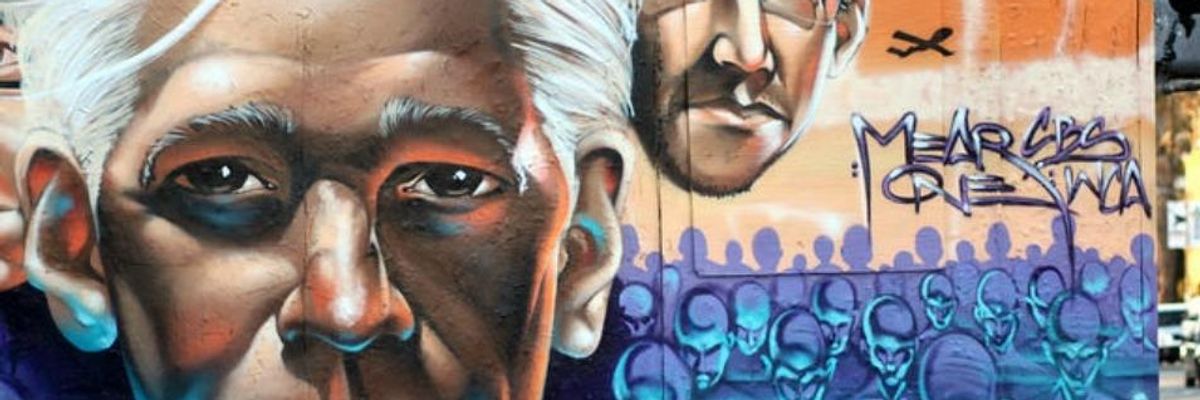Following confirmation that the U.S. Department of Justice does have a sealed complaint against Wikileaks publisher Julian Assange--seemingly based on his work exposing the classified secrets of high-level U.S. government institutions and officials--NSA whistleblower Edward Snowden on Friday afternoon spoke out against any arrest or prosecution of the journalist, saying that one "cannot support the prosecution of a publisher for publishing without narrowing the basic rights every newspaper relies on."
Snowden's comments echoed those of other defenders of press freedoms, but carries special weight as someone, like Assange, who has sacrificed his freedom in the name of exposing the secrets of the world's powerful.
Acknowledging that many people have come to "despise" Assange over the years for a variety of reasons, Snowden declared: "If you would deny a thing to your enemy, it is not a right. What do you stand for?"
In a statement by the Freedom of the Press Foundation, where Snowden serves as board president, the group said that prosecuting Assange for the publishing activities of Wikileaks would be a "profound and incredibly dangerous threat" to press freedoms and journalism around the world.
"Whether you like Assange or hate him, the theories used in a potential Espionage Act prosecution would threaten countless reporters at the New York Times, Washington Post, and the many other news outlets that report on government secrets all the time," said Trevor Timm, FTPF's executive director. "While everyone will have to wait and see what the charges detail, it's quite possible core First Amendment principles will be at stake in this case."

